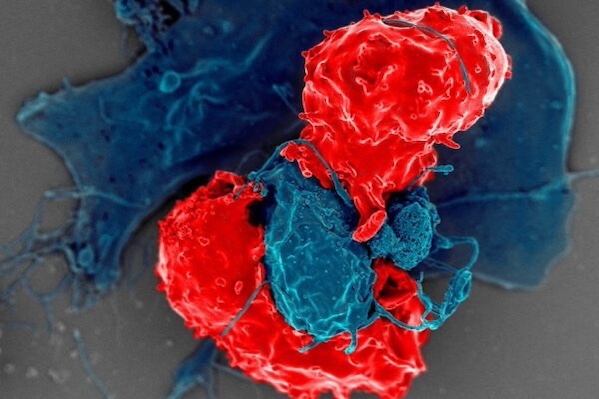Cell Therapy Startup With Stanford Roots Unveils $75M to Seek Inflammation Cures
January 19, 2024
Source: drugdu
 410
410

Startup TrX1 develops cell therapies that function like a particular type of regulatory T cell, or Treg, whose role includes dampening inflammation and inducing long-term tolerance. Based on research from Stanford, TrX1’s lead program is a potential therapy for preventing graft-versus-host disease.
By FRANK VINLUAN
Post a comment / Jan 17, 2024 at 6:04 PM
When immune cells go awry and spark inflammation, a different type of immune cell stands ready to counteract that effect and return the immune system to a state of balance. Therapies based on such cells are part of an emerging area of research for the treatment of a wide range of autoimmune diseases. The work of Tr1X focuses on a particular type of these cells and the startup has emerged from stealth with $75 million and a lead program on track for the clinic later this year.
The cells that tamp down excessive immune responses are called regulatory T cells, or Tregs. Some industry research efforts underway involve harvesting a patient’s Tregs and engineering them to go after a target, an approach that emulates the CAR T-therapies that blazed the trail for cell therapies developed to treat cancer. The field is also pursuing allogeneic cell therapies, which are made by engineering immune cells from healthy donors. This is the approach that Tr1X is taking.
San Diego-based Tr1X focuses on type 1 regulatory (Tr1) cells, which are which are a subset of Tregs whose functions include dampening local inflammation and downregulating the inflammasome, a protein complex that mediates inflammatory responses. While Tr1X’s therapies are allogeneic, rather than trying to harvest Tr1 cells—which are not plentiful in the blood—the company works with more abundant CD4+ T cells sourced from healthy donors. The company says its proprietary technology converts these cells into Treg-like cells that function similarly to naturally occurring Tr1 cells. Furthermore, the company says additional engineering can get these cells to target specific tissues or enable local, targeted immunomodulation. The science of Tr1X is based on the research of scientific founder Maria Grazia Roncarolo, a professor of stem cell and regenerative medicine at Stanford who discovered type 1 regulatory (Tr1) cells.
Tr1X describes its approach as a reset or a reboot of a patient’s immune system. Roncarolo, who is also Tr1X’s president and head of R&D, said in a prepared statement that the startup’s technology enables dual targeting of pathogenic T cells and B cells. She added that the company can engineer cells with the potential to induce tolerance of immune cells, which offer the potential to cure an autoimmune disease in contrast to current therapies that must be taken chronically.
“The ability to develop a pipeline of medicines based on our work on regulatory T cells represents the culmination of decades of discovery and research into the underpinnings of immunological tolerance and autoimmunity,” Roncarolo said. “Tr1 cells have unique properties and represent the ideal therapeutic platform from which to develop ‘immune reset’ products.”
Lead program TRX103 is in development for the prevention of graft-versus-host disease in transplant patients. This complication develops when donated immune cells see the host’s cells as foreign, leading them to attack the host cells. Tr1X is readying its therapeutic candidate for Phase 1 testing in patients undergoing hematopoietic stem cell transplants with cells from a mismatched donor. Other programs in the startup’s pipeline are in development for inflammatory bowel disease, type 1 diabetes, and various B-cell mediated autoimmune diseases.
Tr1X isn’t the only company turning CD4+ cells into potential Treg therapies. Gentibio works with these immune cells, engineering them into Tregs that selectively go after particular disease targets. The startup, which splits its operations between Cambridge, Massachusetts, and Seattle, is in preclinical development with a lead program for type 1 diabetes.
Some Treg startups have landed partnerships with big pharmaceutical companies. The deal that Regeneron Pharmaceuticals inked with Sonoma Biotherapeutics last year focuses initially on ulcerative colitis and Crohn’s disease. Sonoma’s most advanced internal program is in preclinical development for rheumatoid arthritis. AstraZeneca entered the Treg space through a partnership with Quell Therapeutics. This alliance focuses on type 1 diabetes and inflammatory bowel disease. Quell’s most advanced internal program is in preclinical development for preventing organ rejection in liver transplant patients. The lead program of Abata Therapeutics is a potential Treg therapy for multiple sclerosis. The startup has said it expects to bring this therapy into human testing in 2024.
Now that it’s out of stealth, Tr1X is in position to keep pace with other Treg startups and perhaps beat them to the clinic. The company said it expects to be in Phase 1 testing in multiple indications in 2024.
Tr1X’s Series A financing announced Wednesday was led by The Column Group. Other participants in the round are NEVA SGR and Alexandria Ventures.
Public domain image by Flickr user NIH Image Gallery
By editorRead more on
- The first subject has been dosed in the Phase I clinical trial of Yuandong Bio’s EP-0210 monoclonal antibody injection. February 10, 2026
- Clinical trial of recombinant herpes zoster ZFA01 adjuvant vaccine (CHO cells) approved February 10, 2026
- Heyu Pharmaceuticals’ FGFR4 inhibitor ipagoglottinib has received Fast Track designation from the FDA for the treatment of advanced HCC patients with FGF19 overexpression who have been treated with ICIs and mTKIs. February 10, 2026
- Sanofi’s “Rilzabrutinib” has been recognized as a Breakthrough Therapy in the United States and an Orphan Drug in Japan, and has applied for marketing approval in China. February 10, 2026
- Domestically developed blockbuster ADC approved for new indication February 10, 2026
your submission has already been received.
OK
Subscribe
Please enter a valid Email address!
Submit
The most relevant industry news & insight will be sent to you every two weeks.



